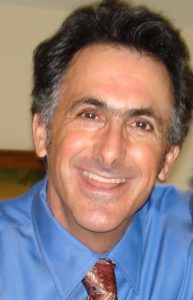David Hastings, climate scientist
Are we doomed? Alarming reports continue of more destructive hurricanes, extreme heat events and rising sea levels. Florida is ground zero for these climate impacts.
It seems that Chicken Little was right: The sky is falling. The scientific community has not changed our basic message for the past 30 years: We know the climate is changing, it is happening now and humans are responsible. Sometimes the news is so full of gloom and doom that I just want to roll over and go back to sleep.
Fortunately, recent changes give reason for hope in what used to be a tornado of despair. We know that humans are the biggest source of uncertainty in how bad things will get. That means we can be the solution, too. The good news is that solutions to the climate crisis are better and cheaper than ever.

Some of these changes are obvious: As my wife and I cruise down the remote bike path from Lake Butler in Union County, we pass by a huge solar photovoltaic farm that stretches as far as we can see. It’s a new 74.5 MW solar array that is one of 10 massive solar arrays that recently sprouted up in peninsular Florida.
Combined, these solar power plants will power about 100,000 homes and create 2,000 new jobs. The massive changes in solar energy, as a result of better technology and increased scale, are providing incredibly cheap energy.
The price of solar has plummeted so fast over the past three years that it is now the “cheapest electricity in history,” according to the International Energy Agency. Costs for new utility-scale solar in the U.S. are lower than new coal-fired power plants; in China and India costs for solar are on par with existing coal plants. That means those developing countries will tear down old and dirty coal plants and build new solar arrays since they are less expensive.
Other changes in the energy landscape aren’t so obvious: Storing excess electricity in batteries is necessary for those times when the sun doesn’t shine. Fortunately, we are on the verge of a battery revolution with a cobalt-free battery and a revolutionary solid-state lithium-ion cell on the horizon that can store more energy, which means greater range for electric vehicles and longer battery life.
Construction has begun on the world’s largest solar-powered battery system in Palm Beach County, which can power all of Disney World for seven hours. It is projected to save customers more than $100 million and provide 70 new jobs, while eliminating over 1 million tons of carbon dioxide emissions and allow the utility to shut down fossil gas plants.
The rest of the world is rapidly following suit.
The hard job we had before to transform the energy infrastructure is much easier now that renewable energy is so cheap. A report released last month by the London financial think tank Carbon Tracker Initiative offers more reasons for hope.
The report reads: “Technical and economic barriers have been crossed by falling costs. It follows that the main remaining barrier to change is the ability of [industry] incumbents to manipulate political forces to stop change.”
The report hints at the main challenge today. It’s politics. If the needed transition is driven by market forces alone, it will take three or four decades. And we don’t have that much time.
A new study published this month in Nature reveals that melting Antarctic ice will lead to “rapid and unstoppable” sea-level rise unless nations commit to lower emissions, quickly. If we limit warming to 3.8°F, in accord with the Paris Agreement, runaway ice melt is not predicted.
It is too easy to think that we are doomed, which is another way to say that we don’t have to do anything. This version of “climate inactivism,” termed by climate scientist Michael Mann, is essentially no different than outright climate denial.
The massive shift in technology has transformed how we can produce energy here in the Sunshine State, in developing countries and wherever the sun shines. These advances are revolutionizing energy policy.
With the right policies, we can cut global emissions in half by 2030, consistent with President Joe Biden’s American Jobs Plan, which seemed impossible a few years ago. Now, all that is lacking is the political will to speed up the transition.
Engaged citizens who demand speedy action on climate can influence government leaders who are delaying climate action.
— David Hastings is a climate scientist and retired professor of oceanography. He recently moved to Gainesville.
This essay was first published in The Gainesville Sun.
“The Invading Sea” is the opinion arm of the Florida Climate Reporting Network, a collaborative of news organizations across the state focusing on the threats posed by the warming climate.


